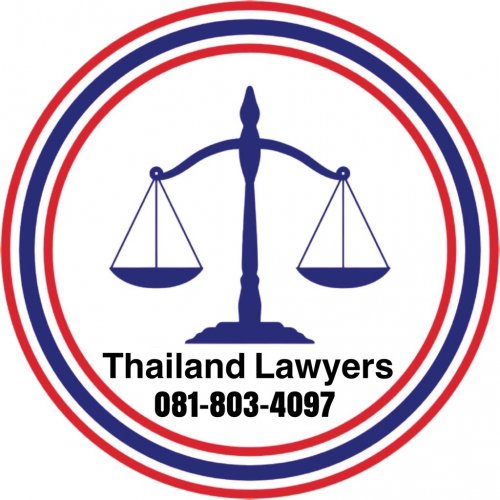Best Hiring & Firing Lawyers in Khon Kaen
Share your needs with us, get contacted by law firms.
Free. Takes 2 min.
List of the best lawyers in Khon Kaen, Thailand
About Hiring & Firing Law in Khon Kaen, Thailand
In Khon Kaen, Thailand, the legal framework governing hiring and firing is primarily under the Labour Protection Act (LPA), which is applicable across the country, including Khon Kaen. This law ensures protection for both employees and employers, offering guidelines on best practices, rights, and obligations concerning employment contracts, working conditions, and termination procedures. The provincial labor office in Khon Kaen oversees the enforcement of these laws, ensuring that fair and lawful practices are maintained in the workplace.
Why You May Need a Lawyer
Legal assistance in hiring and firing might be necessary in several situations. For employers, a lawyer can help draft legally compliant employment contracts, handle disputes with employees, or ensure that terminations are conducted according to the law to avoid lawsuits. Employees may seek legal aid to ensure their rights are protected during termination, handle wrongful dismissal cases, or negotiate severance packages. Legal experts can also offer mediation services to resolve issues mutually.
Local Laws Overview
In Khon Kaen, key aspects of hiring and firing laws include the importance of contract terms, fair dismissal processes, severance pay regulations, and compliance with minimum wage standards. The Labour Protection Act specifies that termination must involve a legitimate reason and usually requires advance notice or compensation in lieu thereof. Employees are entitled to severance pay, calculated based on their duration of employment. Employers are also obliged to adhere to occupational safety standards and non-discriminatory practices.
Frequently Asked Questions
What are the grounds for lawful termination in Khon Kaen?
A lawful termination in Khon Kaen must be based on valid grounds such as misconduct, incompetence, redundancy, or other reasons stipulated in the employment contract. The employer must adhere to legal procedures to avoid claims of wrongful termination.
What is the standard notice period for terminating employment?
The notice period for termination varies depending on the length of employment but generally ranges from one to three months. Additionally, employers can opt for payment in lieu of notice.
Am I entitled to severance pay?
If you are terminated without cause, you are typically entitled to severance pay, calculated based on your length of service as per the Labour Protection Act.
Can I be fired for pregnancy in Khon Kaen?
No, terminating employment due to pregnancy is unlawful. Such termination can be contested in court as discriminatory and unfair dismissal.
What should an employment contract include?
Employment contracts in Khon Kaen should include job title, duties, wage, working hours, probation period conditions, and terms of termination, among other essential elements to ensure clarity and compliance with the law.
Are there any laws on minimum wage?
Yes, the minimum wage in Khon Kaen must align with the national minimum wage laws, which are periodically reviewed and adjusted.
How can an employer handle redundancy?
Employers must provide reasons for redundancy and follow the procedural requirements, including providing notice and severance packages, to ensure compliance with the Labour Protection Act.
What is wrongful dismissal?
Wrongful dismissal occurs when an employee is terminated without valid reason or due process, in breach of employment contract terms, or in violation of the law.
How do I contest an unfair dismissal?
If you believe you have been unfairly dismissed, you can file a complaint with the Labour Court, which may involve an investigation and possibly reinstatement or compensation.
Is legal assistance required for workplace disputes?
While not mandatory, having legal assistance can be beneficial in mediating disputes and navigating the complexity of labor laws effectively.
Additional Resources
For further assistance, individuals can contact:
- The Khon Kaen Provincial Labour Office for guidance on employment laws.
- Labour Protection Department for inquiries related to workers' rights.
- Legal aid services or local law firms specializing in employment law for personalized consultations.
- The Labour Court for filing complaints regarding unfair dismissal or disputes.
Next Steps
If you need legal assistance, consider consulting with a lawyer specializing in employment law to evaluate your case and provide guidance. Start by gathering all relevant documents, such as employment contracts and termination notices, which will be critical in any legal proceedings. Contact the Khon Kaen Provincial Labour Office for support or consider mediation services if you seek an amicable resolution. Understanding your rights and obligations is crucial, so ensure you are well-informed before proceeding with any legal action.
Lawzana helps you find the best lawyers and law firms in Khon Kaen through a curated and pre-screened list of qualified legal professionals. Our platform offers rankings and detailed profiles of attorneys and law firms, allowing you to compare based on practice areas, including Hiring & Firing, experience, and client feedback.
Each profile includes a description of the firm's areas of practice, client reviews, team members and partners, year of establishment, spoken languages, office locations, contact information, social media presence, and any published articles or resources. Most firms on our platform speak English and are experienced in both local and international legal matters.
Get a quote from top-rated law firms in Khon Kaen, Thailand — quickly, securely, and without unnecessary hassle.
Disclaimer:
The information provided on this page is for general informational purposes only and does not constitute legal advice. While we strive to ensure the accuracy and relevance of the content, legal information may change over time, and interpretations of the law can vary. You should always consult with a qualified legal professional for advice specific to your situation.
We disclaim all liability for actions taken or not taken based on the content of this page. If you believe any information is incorrect or outdated, please contact us, and we will review and update it where appropriate.









